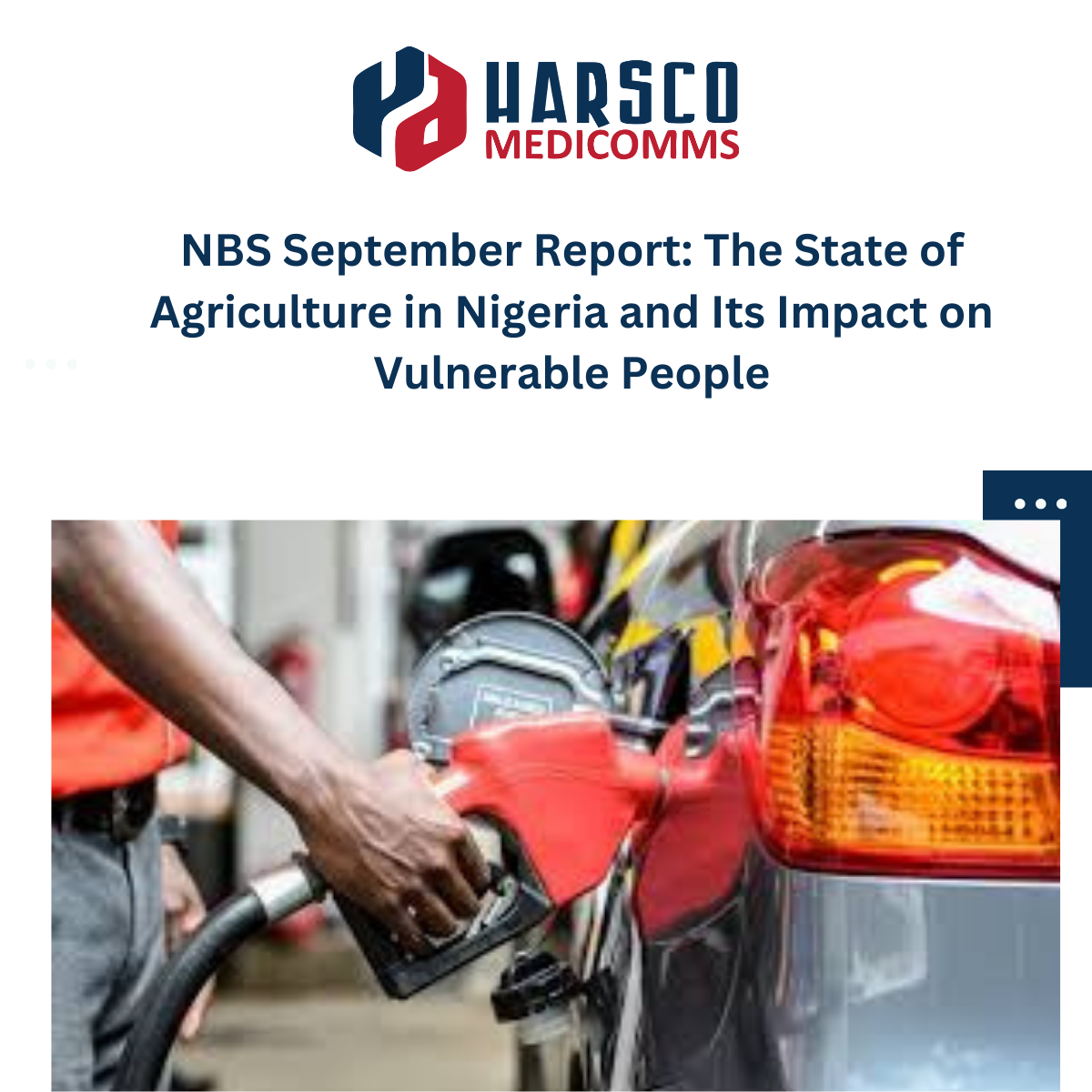Nigeria’s agricultural sector has always been central to the country’s economy, providing employment, food, and sustenance for millions. However, the persistent economic crises, including surging inflation and recent petrol price hikes, have exacerbated the challenges faced by vulnerable populations, particularly in rural areas. The National Bureau of Statistics (NBS) recently released a report revealing that headline inflation soared to 32.70 percent in September 2024, driven by skyrocketing fuel prices and a chain reaction across various sectors, including agriculture. This surge in inflation and rising food prices have placed significant pressure on Nigeria’s most vulnerable populations, threatening food security and deepening poverty.
Food Inflation and Agricultural Struggles
Food inflation, which serves as a significant driver of overall inflation in Nigeria, rose sharply to 37.7 percent in September, compared to 30.64 percent a year earlier. This dramatic rise in food prices is primarily due to the combination of higher production costs, including skyrocketing prices of inputs like fertilizers, maize, and soybeans, alongside increased transportation costs.
Maize and soybeans, crucial for poultry and livestock farming, have seen price surges due to the high cost of fuel and the economic challenges posed by recent floods in northern Nigeria. These floods have undermined agricultural production in regions that traditionally contribute to Nigeria’s food basket, further straining the food supply chain. Vulnerable populations who rely on local agriculture for sustenance and income are now facing the brunt of these impacts.
For rural farmers, particularly those operating in subsistence agriculture, the rising cost of fuel translates into higher costs for farm equipment and transport of goods to markets. This significantly reduces their profit margins and ability to reinvest in their farms. With core inflation hitting 27.43 percent, even the prices of non-food agricultural goods have soared, squeezing both the supply chain and consumers alike. Vulnerable households, many of which are small-scale farmers or laborers in agricultural communities, have seen their purchasing power diminished.
The Cost of Food for Vulnerable Families
One of the most tangible impacts of Nigeria’s inflation crisis on vulnerable communities is the rising cost of basic food items. Eggs, for instance, have become an unattainable luxury for many Nigerian families, with the average price of a crate rising to N6,000, double the price from just 12-15 months ago. This surge in price reflects the broader problem within the agricultural sector, where soaring input costs, such as poultry feed and maize, have pushed up the cost of production.
For vulnerable households, particularly those in rural areas where agriculture is the primary source of income, these price hikes are devastating. Many families can no longer afford the very products they once produced or relied on for nutrition. Women and children, who are often the most affected by food insecurity, are bearing the brunt of these escalating costs, leading to malnutrition and heightened food insecurity.
Fuel Prices and Agricultural Production
Petrol price deregulation has sent shockwaves through the agricultural sector, as it plays a critical role in food production, transportation, and distribution. In September 2024, the price of petrol in Lagos surged to N998 per liter, with prices reaching as high as N1,003 in some northeastern states. These increases have drastically inflated transportation costs, making it more expensive for farmers to move their goods from rural farms to urban markets.
The impact of these fuel price hikes extends beyond transportation. Smallholder farmers who rely on diesel-powered equipment, such as tractors and irrigation systems, are struggling to keep their operations running. The increased costs of production, coupled with challenges like exchange rate volatility, have eroded profits and led to widespread disinvestment in agriculture, further reducing food production.
Government Initiatives: Cash Transfers and Support for Vulnerable Households
Recognizing the toll inflation is taking on the nation, the Nigerian government has rolled out large-scale cash transfer programs aimed at supporting vulnerable households. According to World Bank senior vice president Indermit Gill, between four and five million households have already benefited from these temporary cash transfers. These programs are crucial in helping poor households cope with the relentless price increases and are seen as a necessary short-term measure to prevent further impoverishment of the Nigerian populace.
However, while these cash transfer programs offer some relief, they are not a sustainable solution to the underlying structural problems facing Nigeria’s agricultural sector. Analysts argue that more comprehensive interventions are needed to address the long-term challenges, including investment in infrastructure, support for smallholder farmers, and policies aimed at boosting domestic food production.
The Way Forward: Sustainable Agricultural Development
To combat the economic challenges plaguing the agricultural sector, Nigeria must focus on building resilience within its farming communities. Investing in climate-smart agriculture, improving access to affordable inputs, and addressing the impacts of climate change, such as floods, are crucial to protecting the livelihoods of millions of vulnerable Nigerians. Programs designed to boost crop yields, improve storage and distribution networks, and expand access to modern farming technologies will help stabilize food prices and increase food security.
Additionally, expanding access to renewable energy sources, such as solar power, for rural farmers can mitigate the impact of fuel price hikes and reduce dependency on petrol-powered machinery. These steps, coupled with efforts to rebuild foreign exchange reserves and stabilize the naira, could help Nigeria’s agricultural sector recover and thrive in the long term.
Conclusion
As Nigeria’s inflation continues to surge, the country’s agricultural sector and its vulnerable populations face unprecedented challenges. The high cost of food and agricultural inputs, compounded by rising fuel prices, threatens to deepen poverty and food insecurity across the nation. While government programs such as cash transfers provide short-term relief, long-term solutions focused on agricultural sustainability, investment, and innovation are critical to reversing the tide. By addressing these structural challenges, Nigeria can safeguard its agricultural sector and ensure a more secure and prosperous future for all its citizens.





